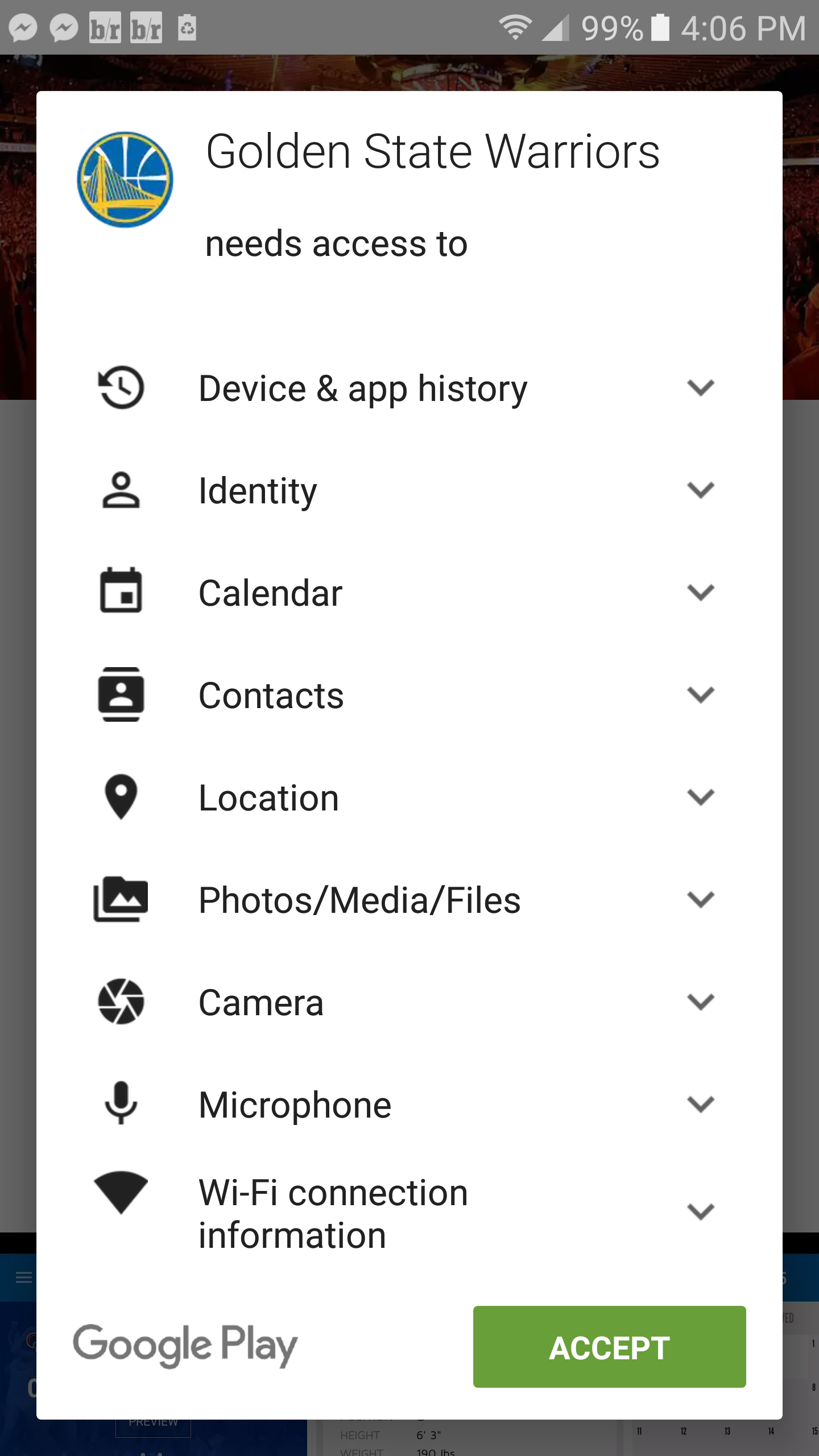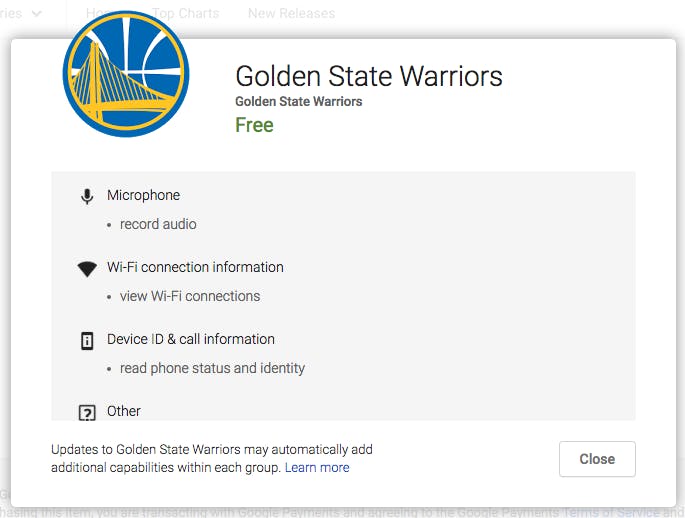Fans always want to know their voices are being heard by their favorite teams, but the Golden State Warriors may have taken things too far. A lawsuit claims the team’s smartphone app is secretly recording fan conversations.
According to a proposed class action lawsuit filed by Edelson P.C. in a federal court in San Francisco, the team has using its free app to tap into the microphone on the smartphones of users who download it.
The case is brought on behalf of plaintiff Latisha Satchell, and argues that the app has been listening and recording users without consent.
“With the Microphone activated, the App listens to and records all audio within range—including consumer conversations,” the lawsuit alleges. “Even more disconcerting, the App turns on the Microphone (listening in and recording) any time the App is running. No matter if a consumer is actively using the App or if it is merely running in the background: The App is listening.”
The lawsuit claims that the app has violated the Electronic Communications Privacy Act and the plaintiffs in the case are seeking damages of $10,000 per person.
Named in the lawsuit are the Golden State Warriors, as well as mobile app developer Yinzcam and technology firm Signal360. The mobile app built by Yinzcam for the Warriors utilizes technology licensed from Signal360 that uses an audio beacon to track a user’s location.
Beacons from Signal360 can be placed in an area to identify precisely where a users is and serve location-specific information—more specifically, advertisements.
The beacons deliver a low-frequency audio signal, delivered either via bluetooth or Signal360’s proprietary technology, which can be heard by the microphone on a mobile device.
The lawsuit claims that Signal360’s technology is being used to “constantly and continuously record and analyze… conversations.” According to the complaint, this conclusion comes from “forensic accounting of the app that reveals exactly how the app operates and uncovers defendants’ ability to remotely eavesdrop on consumers’ lives.”
According to Lauren Cooley, the chief operating officer of Signal360, that isn’t the case.
“There is a clear misunderstanding about how our technology works,” she told the Daily Dot. “We do not capture or store any conversations. Our technology does not intercept, store, transmit, or otherwise use any oral content for any purpose.”
According to an analysis conducted by mobile security firm Lookout for Ars Technica, the current version of the Golden State Warriors app “absolutely contains code to record audio,” but the function is gated and made unavailable by the beacon technology provider.
The analysis reflects the most recent version of the Android app—version 2.2.1—released on July 8, 2016. While it’s possible the recording feature was previously on and has since been turned off, it wasn’t done in response to the lawsuit filed on August 29, 2016.
The lawsuit also claims the app never informs users “that their smartphones are being turned into listening devices nor do they ever seek consent.”
Depending on how you view permissions requests, this technically isn’t true. The Android app does in fact list the microphone as part of its permissions and requires users to opt in to granting access.
On the device, the only details it provides regarding microphone access before installing the app is to say that it “uses the device’s microphone(s).” In the web version of the Google Play Store, the permissions notes that users allow the app the right to record audio when it accesses the microphone.
The iOS version of the app does not ask for nor appear to have access to the device’s microphone.
The Android app never specifically discloses the use of the beacon technology. A case could easily be made that all apps, including Golden State’s offering, should provide more details regarding exactly how they operate, but it’s not clear if that’s enough to be the basis of a class action suit against the team and the app makers.
It is a friendly reminder to check permissions and not simply give full access to every app you download, though.
It’s unclear why exactly the Warriors would want to eavesdrop on fans in the first place, other than just because they can. The team does have tight ties to the Silicon Valley community, thanks in part due to their proximity to the Valley and an ownership team of venture capitalists Joe Lacob and Peter Guber.
It’s possible the team is using recordings to better understand what it is their fans want and how to sell them more merchandise. It wouldn’t be a new practice, either; advertisers have begun using high-frequency sounds to track user activity on mobile devices, websites, and even televisions.
One thing is for sure, though: If you’ve spent any extended period of time talking to a Warriors fan, you know just how bad of an idea eavesdropping on them would be. It seems as though it would be impossible for fans of a team that just set the NBA single season wins record and signed one of the best players in the game during free agency to find a way to complain, but they manage.
The Golden State Warriors did not respond to request for comment. The Daily Dot also reached out to app developer Yinzcam and law firm Edelson P.C. for comment but did not receive replies at the time of publication.




